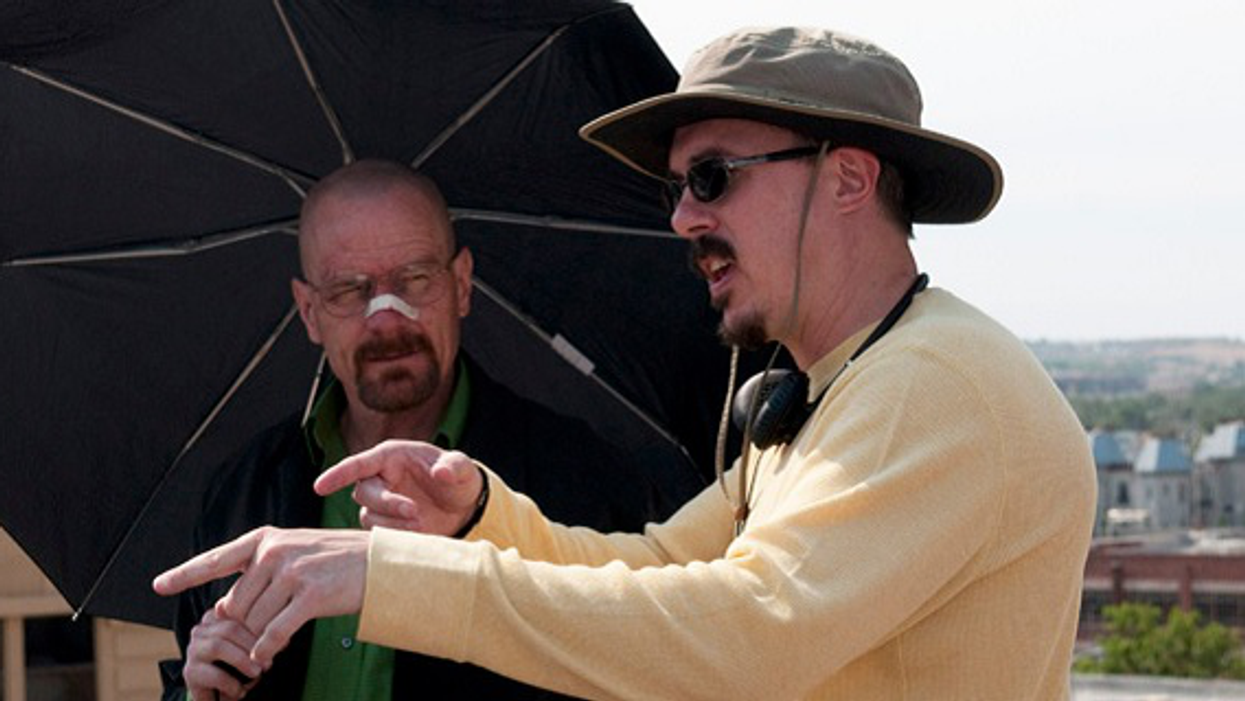Here's How Vince Gilligan Made 'Breaking Bad' So Damn Good
The showrunner ran one of the most secretive and complicated writers' rooms in history. But what was his average day like?

Being a showrunner is one of the most demanding jobs in all of Hollywood. You have to be in the writers' room, on set, in the edit, and everyone wants your opinion on everything. That's why it's so cool to get an inside look at Gilligan's day to day from the Breaking Bad special features.
The show has been over for years, but I wanted to revisit this to emphasize how much work goes into every episode of television you see.
Check out this video from the Breaking Bad DVD extras and let's talk after the jump!
What's the life of a showrunner like? Some days they are jam-packed and you have to be everywhere at once.
The Writers' Room
Writing is problem-solving. Of you have a bad script you have no foundation for whatever comes next. This means that Gilligan's number one priority is as a writer on the show. He has to manage the room, help with ideation, and give notes on every episode turned in.
But there's so much more than hammering out the story. Even if that's the most important part.
You also have to shoot each episode.
Speaking with Directors (and Writers)
After the episode is written and notes are given, the director comes in.
Vince sometimes is that director. He did the pilot and lots of other episodes along the way. But more times than not, they have an outside director like Michelle McLaren come in to do the episode.
Vince set the look and tone when he directed the pilot, now he works with the director to preserve it. That means everything in the Breaking Bad world needs to be consistent with our reality.
Gilligan says he loves "the meat and potatoes of production" and views directing as "problem-solving in a concrete world."
He gets down to the nitty-gritty and helps out on set. The director speaks with the writer and collaborates. Gilligan overseas that in addition to everything in pre-production. That means he's actively involved in...
Producing
Not only does the showrunner work with the writers and directors, but they also have to produce the episode. It means having a hand in the production design, budgets, and the general building of the show.
Gilligan makes these decisions in a series of meetings and is always trying to work a few episodes ahead so the process fows.
The Edit
After production ends, the director goes off and creates a director's cut of the episode. This cut is usually 10-12 minutes too long for the network, so then the showrunner comes in and does their polish.
Usually, this polish is just to add nuance and shave minutes.
But he also wants to make sure the show's signature style is there.
Gilligan is very open to input and suggestions and ays he generally loves each director's cut. All he wants to do is take the input and then adds nuance like sounds, ambiance, and specific cuts.
The Sound Mix
This is the last step before an episode airs and the showrunner's final duty.
You sit with the mixers and decide if gunshots are too loud or you want to layer in a plane flying overhead for effect. So much of Breaking Bad is done through nuance. So this is really where the finishing touches and polishes can put an episode over the top.
Summing it up
Being a showrunner is incredibly exhausting and requires a ton of your time. Still, the way Gilligan does it all smiling makes it look like the best job in the world. So much of his joy is derived from living in the moment.
If you get to write and direct and produce television than you are truly living the dream.
Especially on a show as brilliant as Breaking Bad.
What's next? Relive the Breaking Bad Pilot!
The Breaking Bad pilot script is widely considered one of the greatest of all time. So what can you learn from this screenplay download?
Click to find out.











